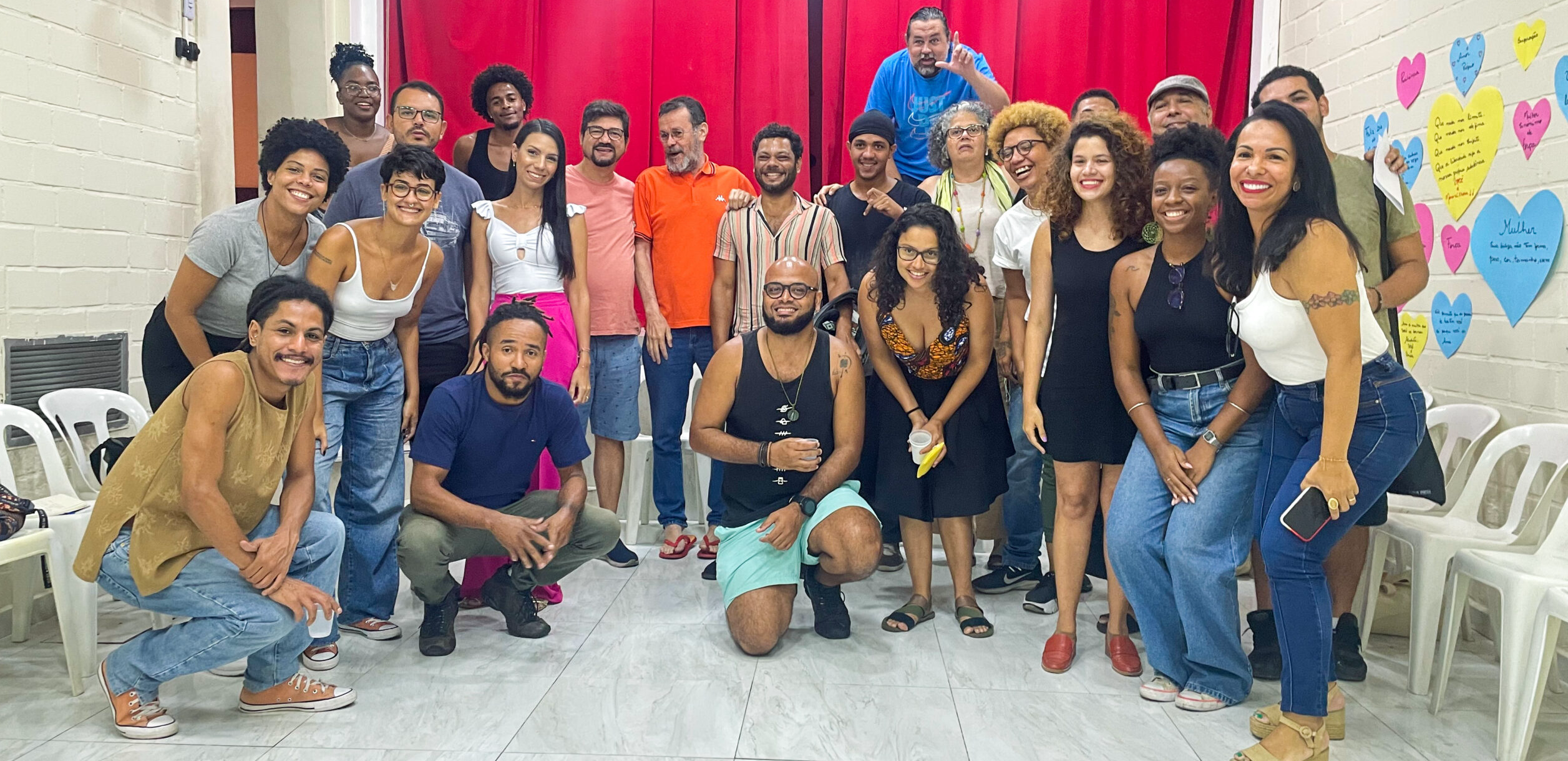
Clique aqui para Português
On March 18, 2023, Espaço Casa Viva in the favela of Manguinhos hosted the 27th meeting of the Favela University Forum, with the theme “Health Promotion and Knowledge Production—Young Researchers in Action.” The meeting discussed access and retention of Black youth from favelas in universities.
The Favela University Forum (FFU) emerged in 2018 through an initiative by favela activists, mostly from Complexo da Maré and Manguinhos, inspired by the theme “science to reduce social inequalities” during the 2018 National Science and Technology Week (SNCT) organized by Brazil’s national health foundation, Fiocruz.
The Forum promotes conversations on paths to bring favelas and universities closer together, aimed especially at residents in higher education or taking university entrance exam prep courses, or who have already graduated from college. So far, there have been seven editions of the FFU, which took place alternately at the Maré Museum, Museum of Life (Fiocruz), Faculty of Arts (UFRJ), and Espaço Casa Viva.
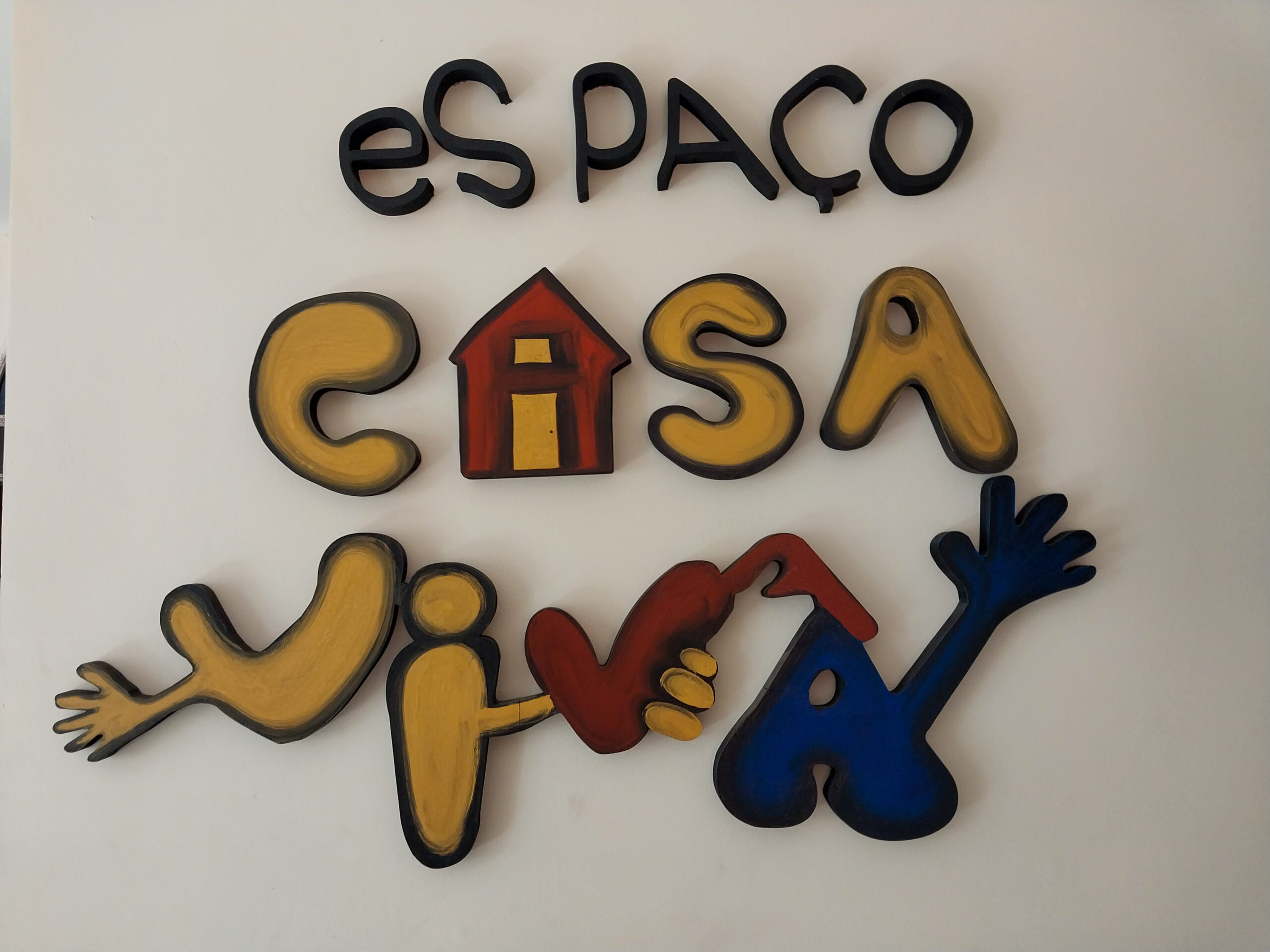
At the 27th Forum, work by three youth researchers who are residents of favelas was discussed: Anderson Alves, who presented ‘What does Mona tell me? Stories of experiences of the sexual relations of ‘bichas pretas’ [slang term for Black LGBTQIA+ youth] during the Covid-19 pandemic’; Dione Rodrigues and her research ‘Young Black Women, Health, and UERJ Student Support Policies’; and Letícia Pinheiro, with ‘Health, Psychoactive Substances, and Favela Youth in Acari.’
The event also featured a cultural performance by members of the Pac’Stão Collective, which performs a rap circle of the same name in Manguinhos, and poetry reading by Eduardo Costa, also known as “Doisd” and founder of the collective, and Guilherme Ribeiro, also known as “GUIW.”
According to André Luiz Lima, PhD in History of Science and Health at Casa de Oswaldo Cruz (PPGHCS/COC) and one of the founders of the Forum, the aim is to “bring favela residents who have or want to have the university experience to understand the challenges of university life for residents of the urban periphery. These undoubtedly include a racial dimension, the issue of patriarchy, the issue of LGBTQIAP+ phobia, economic issues, the issue of armed violence by the State, which prevents us from fully moving around the favela… I am one of those people. I graduated from the Institute of Philosophy and Social Sciences (IFCS) at UFRJ and did my master’s and PhD while living in Manguinhos. So, I know the difficulties we face.”
Knowledge Production: Youth Favela Researchers in Action
Anderson Alves is a teacher who graduated from the Baixada Fluminense Faculty of Education (FEBF) at the State University of Rio de Janeiro (UERJ) and is working on a master’s degree in Education, Contemporary Contexts, and Popular Demands at the Federal Rural University of Rio de Janeiro (UFRRJ). He is part of the second edition of the Young Investigators in Health and Youth Program of the Fiocruz Youth Agenda (AJF). Born and raised in Realengo in the West Zone, he currently lives in Morro da Providência in Central Rio. It was in the Providência favela where Anderson carried out his research ‘What does Mona tell me? Experience reports on the sexual relations of ‘bichas pretas’ during the COVID-19 pandemic,’ focusing on Black LGBTQIAP+ youth.
“My feeling was of belonging and being able to share what we experience with my own [people], but which is also being formalized in the format of a research project. It is fundamental for us to understand the importance, the relevance that we have with our training, with our production of knowledge. Being a Black, gay man from the urban periphery gives me a genuine desire to change the world.” — Anderson Alves
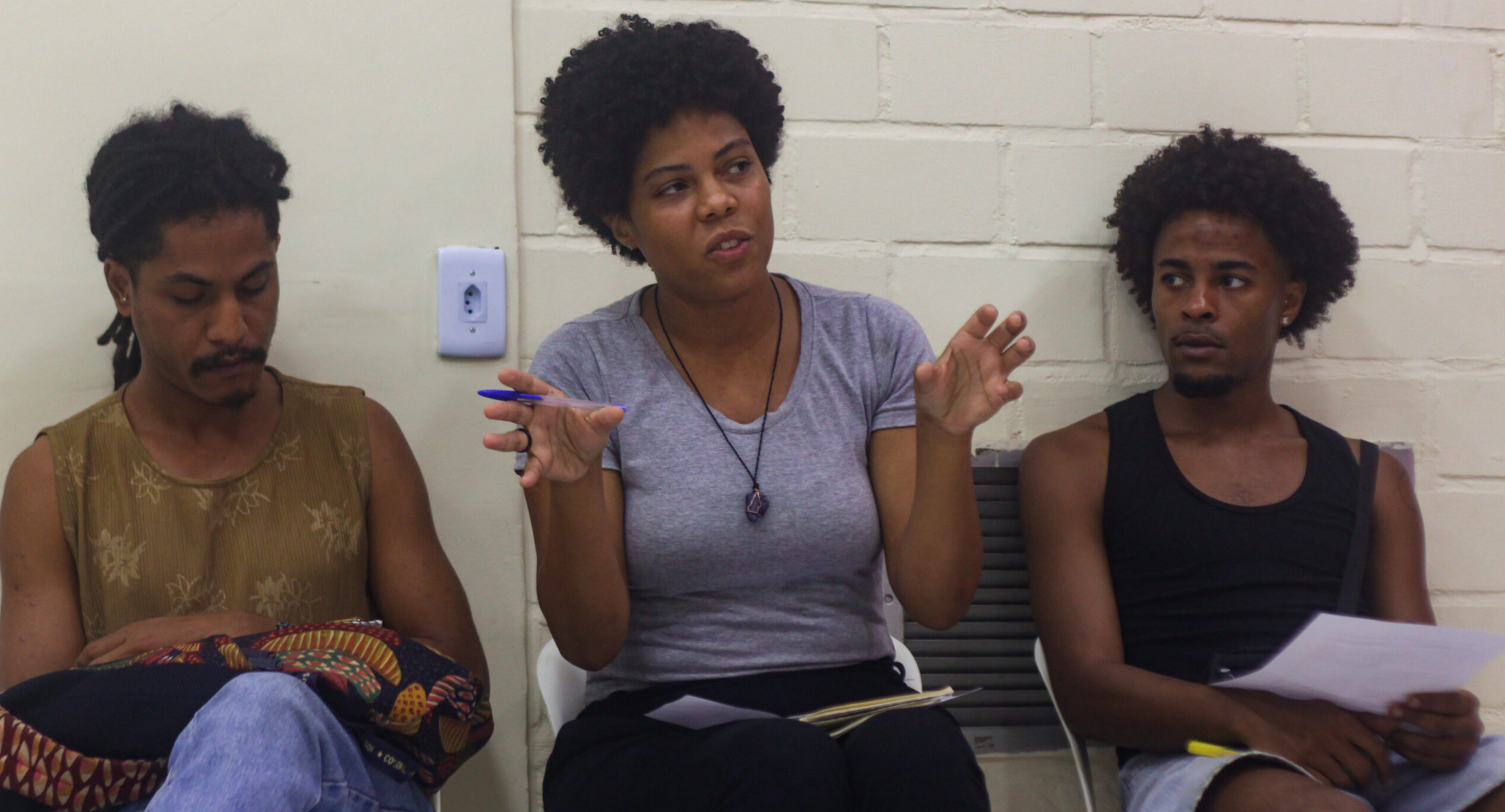
Dione Rodrigues is a Black woman who was born and raised in the West Zone of Rio and currently lives in the Mangueira favela in the city’s North Zone. She is a social worker who graduated from the State University of Rio de Janeiro (UERJ) and has a master’s degree in Social Work from the Federal University of Rio de Janeiro (UFRJ). She is also part of the second edition of Fiocruz Youth Agenda’s Young Investigators in Health and Youth Program. Her research ‘Young Black Women, Health, and UERJ Student Support Policies’ studied the issues faced by young Black women studying Psychology at UERJ as beneficiaries of affirmative action.
“[It’s essential to] have spaces like this, the Favela University Forum meeting, to discuss my research which talks about the reality of young Black women, which is also my reality, about meanings and possibilities of talking about ourselves, by us for us, talking about the space we occupy and about our perceptions of that space, about our demands and about our wishes. When we talk about research, we mainly talk about qualitative research. We are talking about subjectivity. That is what we, Black women, are talking about. What we, Black women, are producing as researchers, as teachers.” — Dione Rodrigues
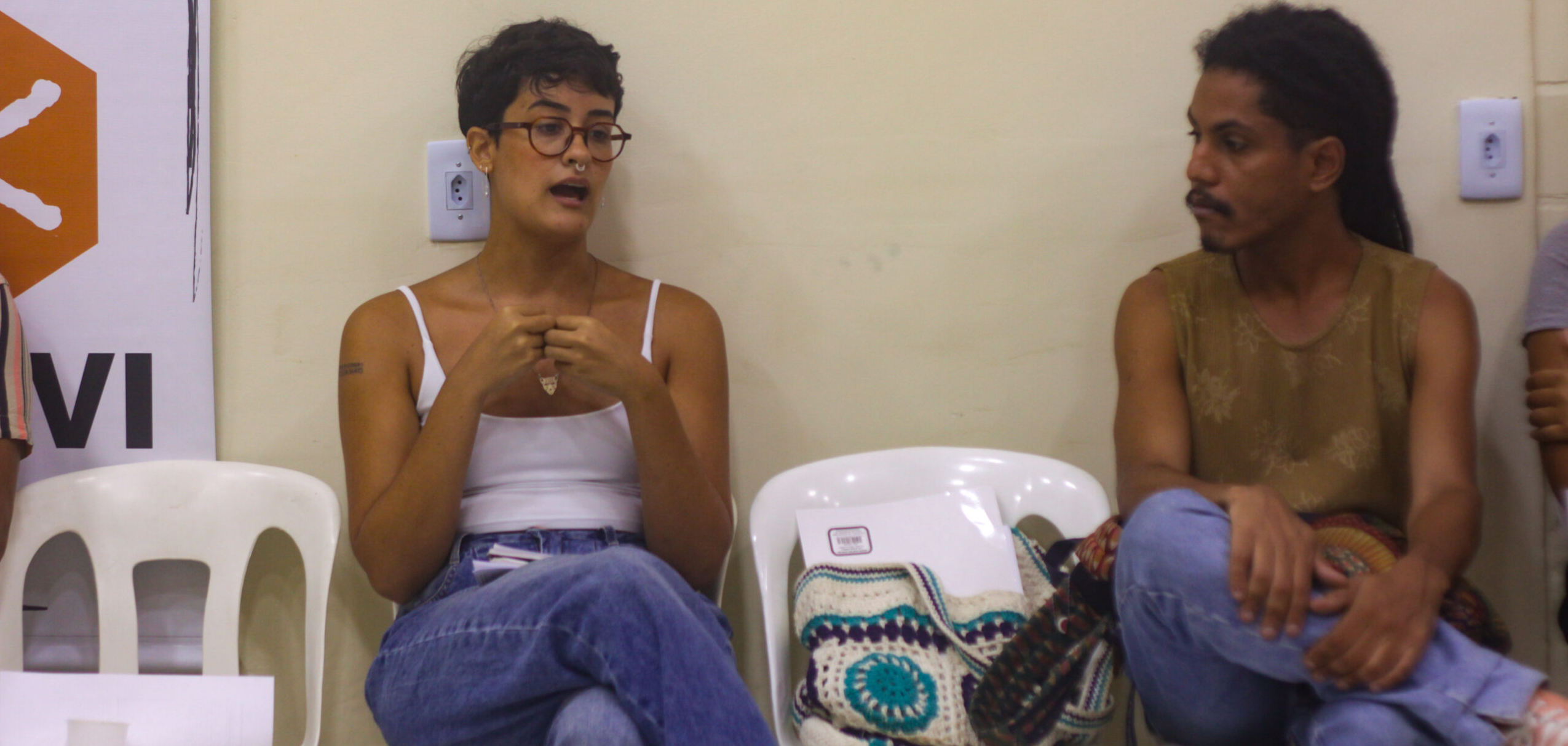
Letícia Pinheiro was born and raised in the Acari favela and is part of the Fala Akari collective. She is a social worker at the Fluminense Federal University of Rio das Ostras (UFF-CURO), a master’s student in Social Work at UERJ, is part of the second edition of the Fiocruz Youth Agenda’s Young Investigators Program, and is a researcher at the Jorge Careli Latin American Center for the Study of Violence and Health (CLAVES). At the event, she presented her research on ‘Health, Psychoactive Substances, and Favela Youth in Acari’ and reflected on the importance of academic research carried out by favela residents to counter the historical statistical erasure of these majority Black territories.
“Those of us who research and are in the favela also want to talk to our [people] about this, about our issues. We want to consider outcomes for the favela, we want to consider impacts, and we want to consider responses to the demands of our favela. A space like this, for dialogue and articulation, is very important… In the favela, there is a huge gap in data, in the production of statistics, because the State appears mainly through police operations. When we think about solutions for the demands of the favelas, there’s not enough data. Research has a very important task in society: to provide feedback for existing demands. The place of research becomes crucial for us to organize in the favelas.” — Letícia Pinheiro
Partners
Institutional support has been important in the creation and development of the Favela University Forum, including support from the UFRJ Extension Pro-Rectory (PR5), Center for Studies and Solidarity Actions of Maré (CEASM), represented by the Maré Museum, and Network of Social Enterprises for Socially Just, Democratic, and Sustainable Development (REDECCAP), represented by Espaço Casa Viva.
Alessandro Machado from Fiocruz’s Museum of Life commented on the importance of the partnership with the FFU. He highlighted the role of supporting and promoting the structuring of the Forum by these institutions. “Fiocruz has a responsibility as a Brazilian state institution in Manguinhos, [an institution] of excellence which develops research and technology within an area marked by favela stigma. It has the responsibility of collaborating with these territories to strengthen public health, education, culture, and leisure initiatives which promote well-being for these territories, to strengthen the citizenship of these territories, and collaborate so that civil rights, human rights, and social rights are guaranteed in these locations. I think this is the institution’s role, it can promote health in these territories.”
According to Elizabeth Campos, coordinator of Casa Viva and resident of the Manguinhos favela, Espaço Casa Viva is very similar to the Forum, precisely because it is a space working with art, education, and culture that encourages debates within the favela:
“Hosting an event like this at Casa Viva confirms the importance of social groups, social movements, social organizations, and social collectives in discussions, qualifying and bringing our issues closer to academia, always in a dialogic relationship, of exchanging knowledge, respecting knowledge, valuing place, and always seeking public policies that can improve student life during this period of university.”
Pac’Stão Collective’s Cultural Performance
The event ended with a cultural performance by the Pac’Stão Collective of rappers from Manguinhos. The group has held cultural circles in Manguinhos for the last ten years. Eduardo Costa, “Doisd”, and Guilherme Ribeiro, “GUIW”, introduced themselves with poetry, which, as they said, is the way they know how to present themselves.
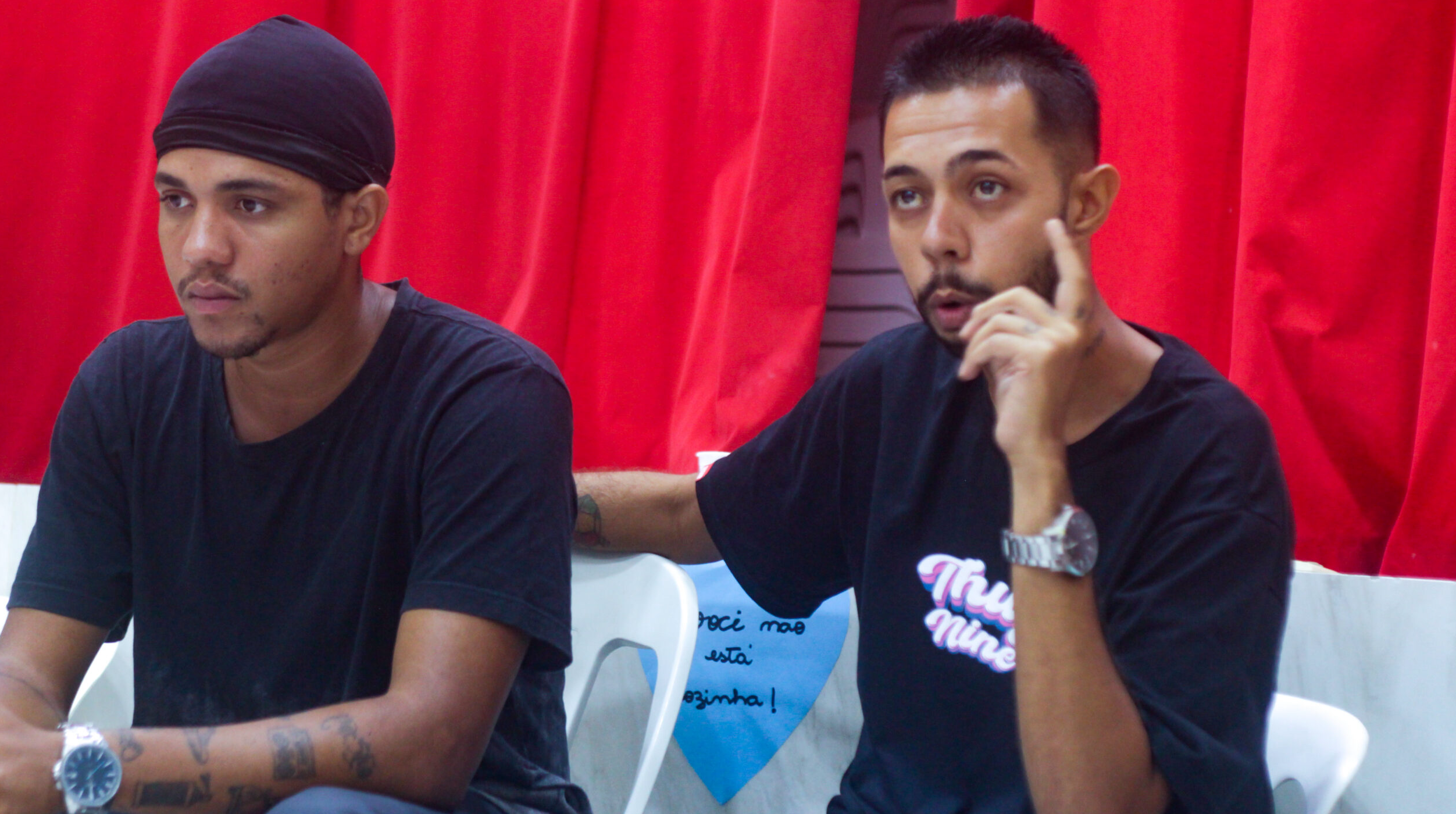
“Seeing the Forum meeting shows that favelas can reach university. There really are a lot of limitations, it’s very difficult. Here you either work or study. Unfortunately, I didn’t finish my studies. Slowly we are increasingly able to get a degree. Xande (member of the collective) is studying Pedagogy… We want to put hip hop into schools.” — Eduardo Costa, Rapper Doisd
About the author: Vinícius Ribeiro was born and raised in the West Zone of Rio, and currently lives in the favela of Ladeira dos Tabajaras, in the South Zone. Journalist, cinematographer and photographer, he is a member of the Fotoguerrilha Collective. He is director and screenwriter of short films Sobreviver, Dame Candole, Sob o Mesmo Teto and Entregadores, and is currently involved with a project about the Uberization and precarization of labor.
